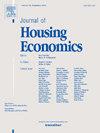奥地利住房租赁市场中的歧视:第一代和第二代移民身份信息的影响
IF 2.4
3区 经济学
Q3 ECONOMICS
引用次数: 0
摘要
本研究调查了移民世代对移民住房歧视的影响,这种影响此前尚未被探索。房东可能会认为新移民特别 "另类",担心他们不是好租客,例如他们会以不良方式对待房产或不付账单。为了检验文化适应的影响,我们在奥地利进行了一次电子邮件通信测试,并比较了房东对第一代、第一代半和第二代移民(名字为塞尔维亚、叙利亚或土耳其)与未提供各自移民背景信息的移民的询问的回应。我们发现,当申请人说明其出生地和成长经历时,第一代移民受到的歧视最高,第二代移民受到的歧视最低。这表明文化程度较高的申请人更有优势。然而,与不提供任何信息相比,主动表明第二代背景只对其中一个受测移民群体(叙利亚人)有利,否则他们可能会被视为近期难民。本文章由计算机程序翻译,如有差异,请以英文原文为准。
Discrimination in the Austrian rental housing market: The effect of information concerning first and second-generation immigrant status
This study investigates the previously unexplored effect that immigrant generation has on housing discrimination against immigrants. Property owners may perceive more recent immigrants as particularly “other” and fear that they will not be good tenants, e.g. because they will treat a property in an undesirable manner or not pay their bills. To test the effect of acculturation, we conduct an email correspondence test in Austria and compare landlords’ responses to inquiries from immigrants (with a Serbian, Syrian or Turkish name) of the first, first and a half, and second-generation to those who do not provide respective information about their immigration background. We find that when applicants indicate their place of birth and upbringing, discrimination is highest for first-generation immigrants and lowest for second-generation immigrants. This suggests an advantage for more acculturated applicants. However, compared to providing no information, actively signaling a second-generation background only benefits one of the immigrant groups tested (Syrians), who may be perceived as recent refugees otherwise.
求助全文
通过发布文献求助,成功后即可免费获取论文全文。
去求助
来源期刊

Journal of Housing Economics
Multiple-
CiteScore
3.30
自引率
4.20%
发文量
35
期刊介绍:
The Journal of Housing Economics provides a focal point for the publication of economic research related to housing and encourages papers that bring to bear careful analytical technique on important housing-related questions. The journal covers the broad spectrum of topics and approaches that constitute housing economics, including analysis of important public policy issues.
 求助内容:
求助内容: 应助结果提醒方式:
应助结果提醒方式:


